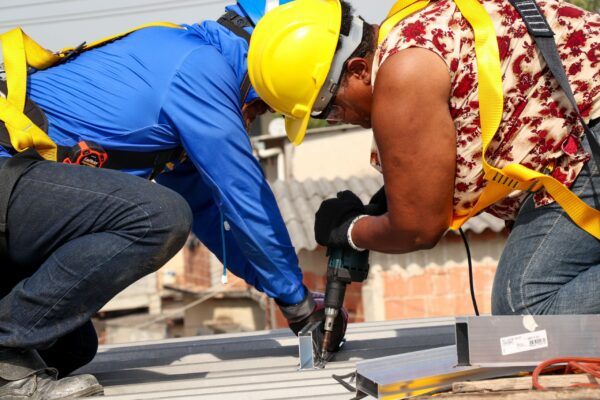INTERNATIONAL NEWS: Rio de Janeiro Favelas get solar!
The Association of Women With Attitude and Social Commitment (AMAC), have successfully installed a photovoltaic system in Duque de Caxias, a municipality in Greater Rio de Janeiro’s Baixada Fluminense region.
They have big plans; they have trained 20 community leaders to become solar ambassadors and local installers through trained courses (watch the video here). Australia can definitely take some inspiration.

Image from Rio on Watch – “Edize Maria Santos, resident of Cangulo in Duque de Caxias, is a cabinet installer and was trained during the installation of the system at AMAC headquarters on August 12. Photo: Alexandre Cerqueira”
“Despite having excellent solarimetric potential to explore solar energy, the Baixada Fluminense region has barely tapped into this opportunity. Despite approximately 57% of the population of the city of Rio de Janeiro and a significantly larger geographic area, the installed photovoltaic capacity of the region represents only 23% of that of the city of Rio de Janeiro. The unrealized solar potential of the region is gigantic. ” Rio on Watch (September 10th, 2023)
AMAC recognises the deficiency of electricity distribution in the favelas and the fact that many people can’t pay their energy bills, causing families to choose between buying food and paying for energy. They know it is important to move forward in regions that need to implement cheaper energy, and that solar energy will make an important contribution to people’s lives.
…Don’t look at us as sad poor people who have no capacity for anything. See us as people who have potential and who, if the doors are opened, and were given the chance, we will take our rightful place… (from video, watch here)
The story hits close to home here in Australia as questions continue to arise as to why there are no rooftop solar systems on remote community rooftops. Energy insecurity is a real issue in Indigenous communities as was discussed in a recent article in The Conversation, and a HH news item. Evidence shows many remote indigenous community houses experience high rates of disconnection, making people with chronic diseases who depend on cool storage and electrical equipment particularly vulnerable, all of which will only increase with the effects of Climate Change (read more on this topic in medical report here).
Fantastic work by AMAC empowering the local community.









